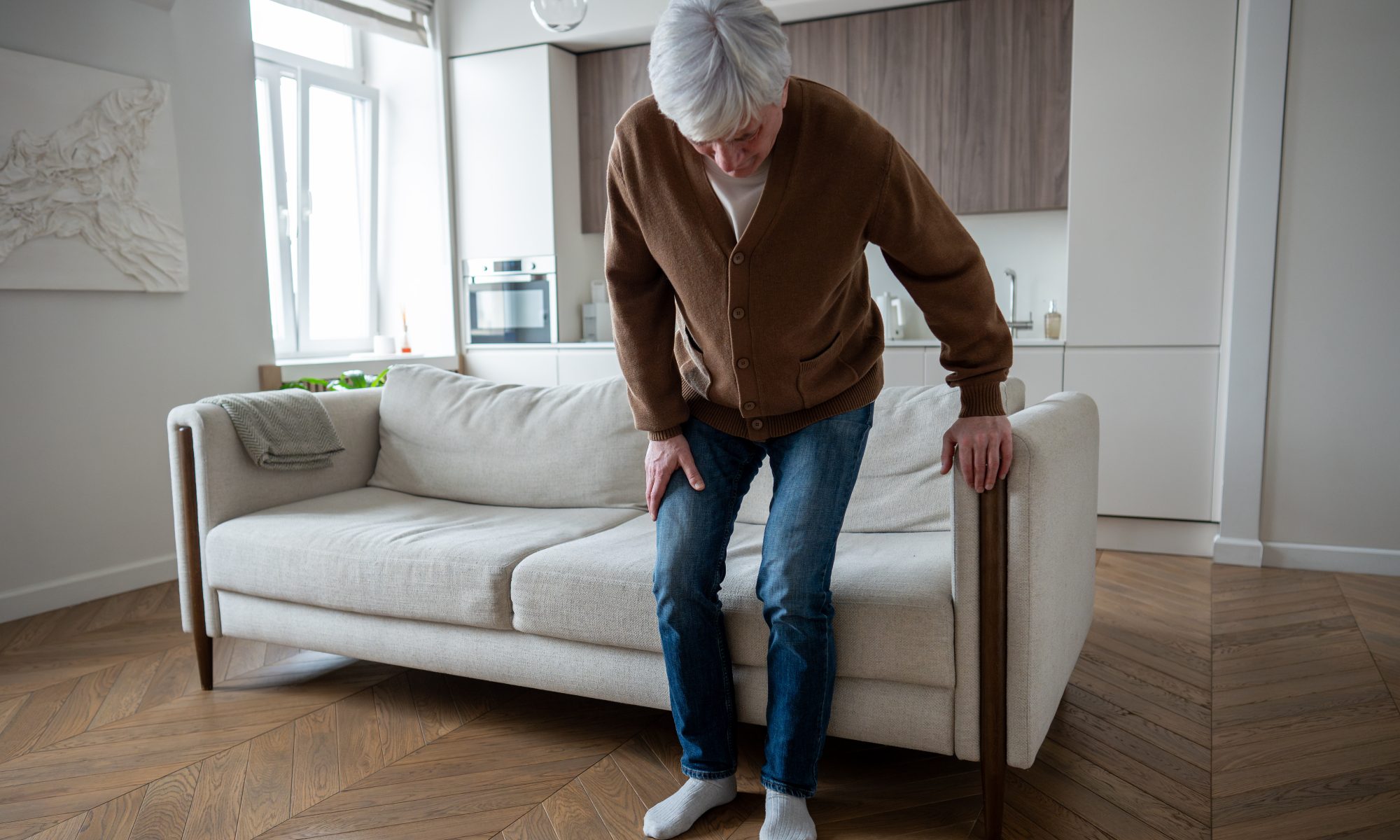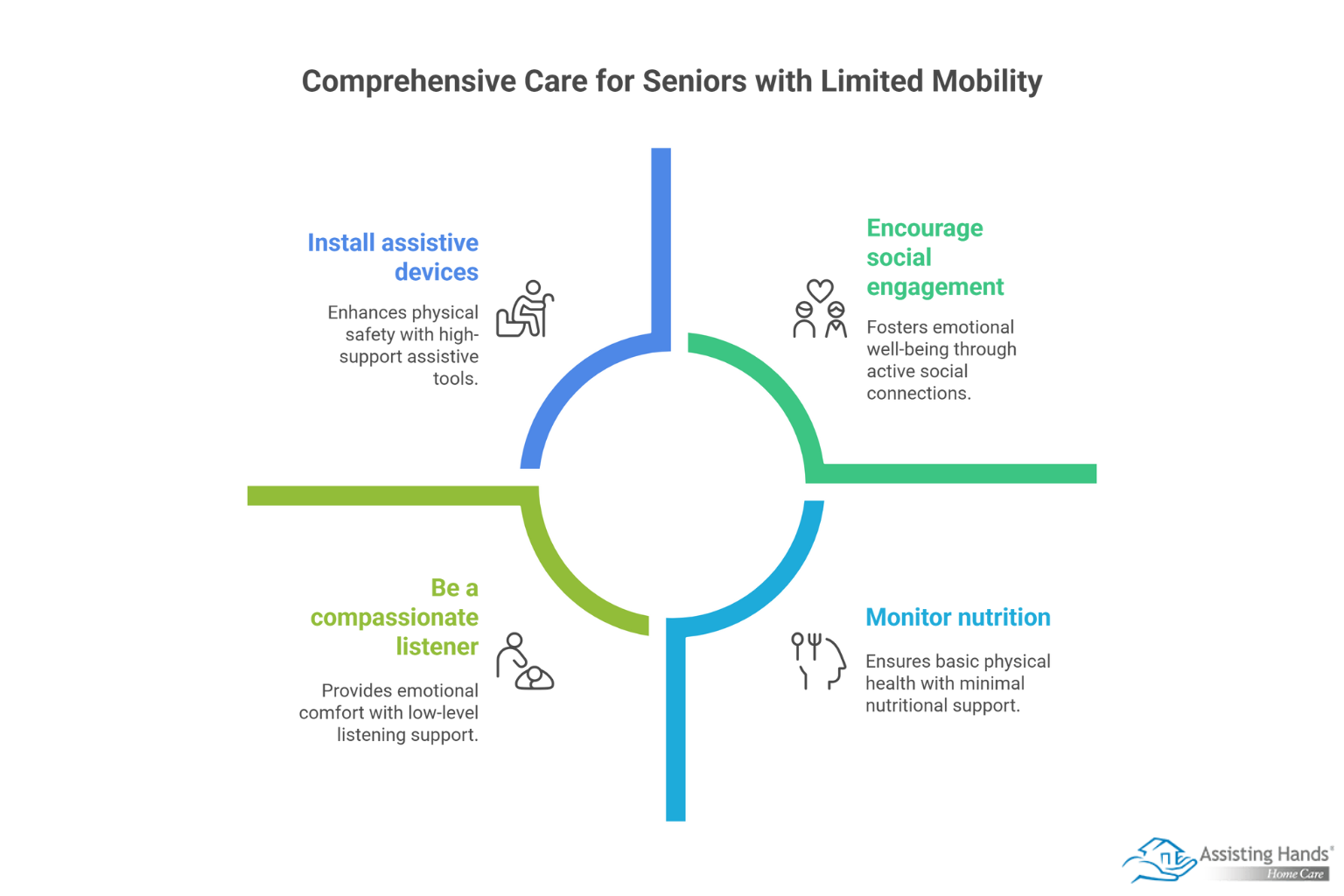
Table of Content
Caring for a senior loved one with limited mobility requires patience, empathy, and a good understanding of his or her needs. By addressing both physical and emotional challenges, you can help your loved one maintain a higher quality of life and remain as independent as possible. Here’s how you can provide effective support while ensuring your loved one’s comfort and safety.
Create a Safe and Accessible Environment
A safe home environment is essential for an individual with limited mobility. Adjust the living space to reduce hazards and offer increased accessibility.
- Remove potential hazards – Eliminate clutter, loose rugs, and cords that can pose tripping risks.
- Install assistive devices – Equip the home with grab bars, handrails, and nonslip mats in areas like bathrooms and hallways for added safety.
- Rearrange essentials – Place frequently used items within easy reach to save unnecessary physical strain.
- Consider mobility aids – Wheelchairs, walkers, or motorized scooters may help your loved one move around more freely.

Assist with Daily Activities Respectfully
People with limited mobility may need help with everyday activities like bathing, dressing, and eating. It’s crucial to provide assistance in a way that respects your loved one’s dignity and promotes independence wherever possible.
- Encourage independence – Support your loved one in performing tasks he or she is capable of, even if it takes more time.
- Use adaptive equipment – Shower chairs, long-handled tools, and adaptive utensils can make tasks easier and safer.
- Be gentle and patient – Use a calm and reassuring approach, ensuring your loved one feels comfortable throughout the process.
There are a variety of age-related health conditions that can make it more challenging for seniors to live independently. However, many of the challenges they face can be easier to address if their families opt for professional at-home care. You can rely on expertly trained caregivers to keep your loved one safe and comfortable while aging in place.
Support Physical Health
Maintaining physical health is critical, even for individuals who have difficulty moving. Collaborate with medical professionals to develop a plan tailored to your loved one’s needs.
- Encourage safe mobility – Promote regular movement to the extent possible to prevent joint stiffness and muscle loss.
- Try physical therapy – Regular therapy sessions can increase strength and flexibility.
- Monitor nutrition – Ensure your loved one follows a balanced diet that supports his or her health and energy levels.
- Prevent bedsores – If your loved one spends extended time in bed or a wheelchair, adjust his or her position regularly to reduce the risk of pressure sores.
A trained caregiver with experience in caring for seniors with mobility limitations can be a fantastic resource for family members. Miami home care experts are available to provide high-quality care to seniors on an as-needed basis. From assistance with mobility and exercise to providing transportation to the doctor’s office and social events, there are a variety of ways professional caregivers can help your aging loved one continue to live independently.
Prioritize Emotional Wellbeing
Limited mobility can be emotionally challenging, leading to feelings of isolation or frustration. Addressing these emotional needs is just as important as physical care.
- Encourage social engagement – Help your loved one connect with friends, family, or community groups to reduce loneliness.
- Be a compassionate listener – Allow your loved one to share how he or she is feeling and provide reassurance.
- Facilitate hobbies – Assist your loved one in pursuing activities he or she enjoys, like reading, crafting, or watching movies.
- Celebrate small wins – Recognize your loved one’s efforts and progress, no matter how small, to uplift his or her confidence.
Learn Proper Lifting and Transfer Techniques
To ensure safety for both you and your loved one, learning proper lifting and transfer techniques is essential.
- Use transfer aids – Equipment like transfer boards or hoists can assist with moving your loved one without strain.
- Practice correct techniques – Always bend your knees, keep your back straight, and use your legs—not your back—to lift.
- Ask for help when needed – Some transfers require two caregivers for safe execution. Avoid taking risks if you’re unsure.
If your senior loved one needs hourly or live-in care, Miami Assisting Hands Home Care can help. Our caregivers can assist with exercise and mobility, prepare nutritious meals, provide timely medication reminders, and help with a wide array of other important daily tasks. Call Assisting Hands Home Care to learn more about our flexible and customizable senior care plans.
